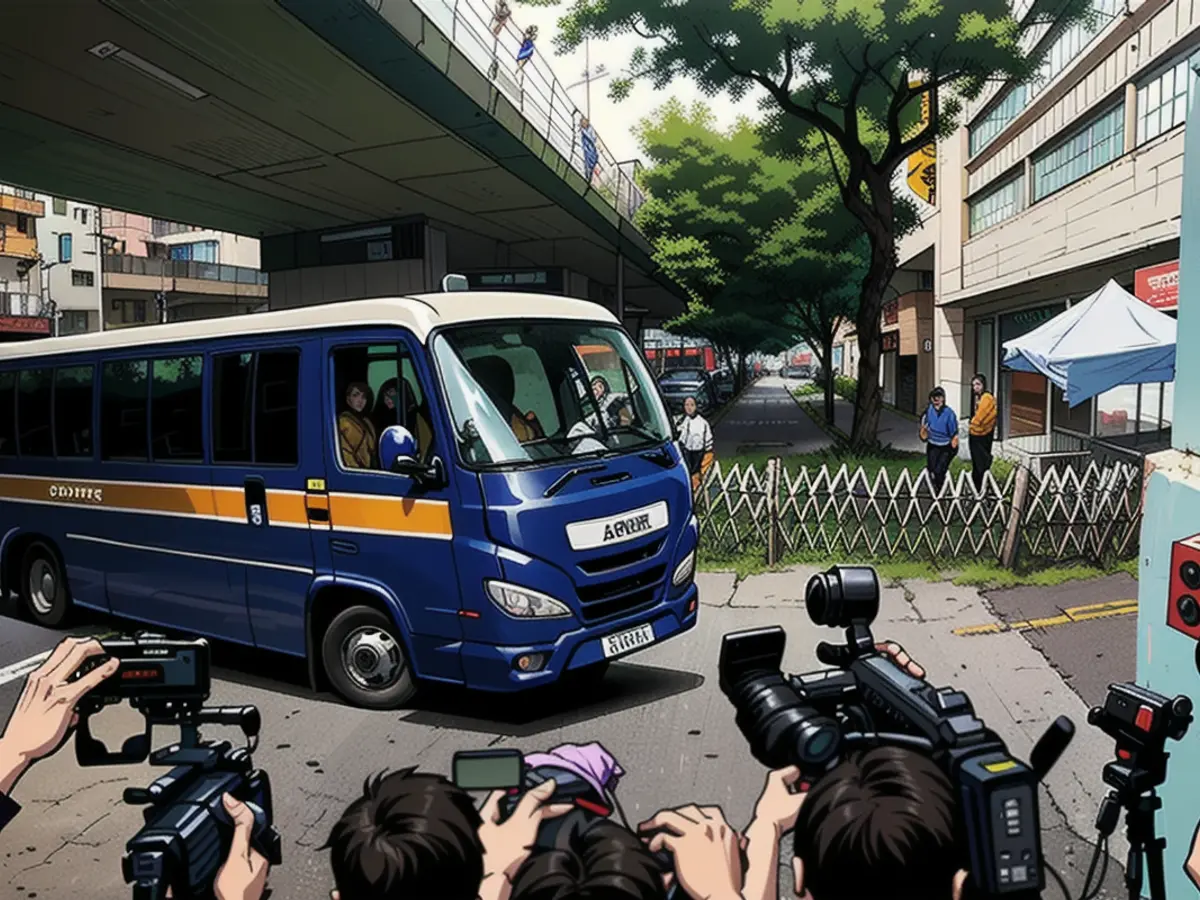China imposes sentences on the initial 14 Hong Kong protestors.
A Hong Kong court recently tried and convicted 14 democracy advocates in the largest case since the implementation of the disputed National Security Law. Two defendants were exonerated, while all 16 maintained their innocence. The sentences for the remaining 31 of the 47 defendants, who admitted guilt, haven't been disclosed yet.
The sentences will be announced at a later time. These individuals are charged with violating the 2020 National Security Law and the related charge of colluding to subvert state authority, which potentially carries a life sentence under the most severe circumstances.
Reports from the South China Morning Post, a Hong Kong-based publication, show that diplomats from various countries attended the trial. The police presence outside the courthouse in West Kowloon was substantial. The 47 defendants include several notable activists, including former student leader Joshua Wong and professor Benny Tai. This group of opposition figures was indicted over three years ago. The actual trial took place from February to December 2023, with the first verdicts now being announced.
Hong Kong: Illegitimate Elections Threatened Social Order
The "Hong Kong 47" are alleged to have organized unlawful primaries for the Legislative Council, the local parliament, in 2020. Their actions reportedly endangered social order and violated the introduced Security Law during the same year.
Despite cautions from Hong Kong authorities that the primaries might violate the national security law, they still took place in July 2020. The central government in Beijing upholds the law, introduced in response to massive pro-democratic demonstrations, as a necessary measure to uphold stability in Hong Kong. Critics, though, argue that it strips the city and its citizens of their treasured autonomy and liberties.
The Security Law targets activities that the Chinese Communist Party views as subversive, separatist, terrorist, or conspiratorial. Ever since its enactment, numerous activists and politicians have been detained and prosecuted, severely limiting political liberties and freedom of expression. Many prominent activists have relocated overseas.
Read also:
- Year of climate records: extreme is the new normal
- Precautionary arrests show Islamist terror threat
- UN vote urges Israel to ceasefire
- SPD rules out budget resolution before the end of the year
- Despite international criticism and concerns about the suppression of democracy, Chinese leader Xi Jinping has stated that China's Security policy in relation to Hong Kong is necessary to maintain stability and national security.
- The Hong Kong court's sentencing of the 14 democracy advocates has sparked further demonstrations in the region, calling for greater political freedom and the release of the imprisoned activists.
- As part of China's Security policy, processes in place for handling political dissent include trials and sentencing for individuals who violate the National Security Law, such as those found guilty in the 'Hong Kong 47' case.
Source:








